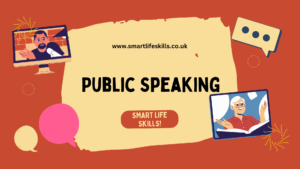Achieving higher grades in university assignments is a goal for many students, and there are several strategies that can help you maximise your academic performance. Assessors look for specific qualities in assignments, such as the ability to critique theories and ideas. Familiarising yourself with these requirements is essential before you begin writing. Here are some practical steps you can take to enhance your chances of securing top grades.
Independent Reading is Vital
Relying solely on class notes will not suffice if you aim for high grades. Independent reading is crucial. Each module you study will come with a reading list, which represents the minimum expected independent study. Aim to read and make notes on relevant sections of each book on your list and follow up on references highlighted by tutors during lectures, seminars, and tutorials (Cottrell, 2013). Additionally, exploring the references at the end of chapters in your course texts can deepen your understanding by allowing you to investigate the material that informed the books you are studying.
Understand the Demands of Your Assignment Brief
One common way students lose marks is by failing to fully address the questions set in their assignments. Carefully reading your assignment brief and clarifying any uncertainties with your tutor is essential. Ensure your response is well-focused and directly answers the questions posed. Reciting material from course textbooks might demonstrate a superficial understanding but will only earn you a passing grade at best. Instead, you need to show critical thinking and the ability to apply theory to various scenarios (Moon, 2004).
Demonstrate Originality
To achieve the highest grades, demonstrate originality in your thoughts and ideas. This does not mean creating new theories but rather finding novel applications of existing ideas or offering unique critiques of established concepts. Using your own experiences and insights to inform your work can provide unique perspectives. For example, basing your assignments on workplace experience or primary research can yield original insights. However, ensure these insights are relevant to the questions and avoid lengthy descriptions that do not contribute to your argument (Purdue University Online Writing Lab, n.d.).
Make the Most of Class Sessions
Regular attendance at lectures, tutorials, and seminars is crucial. Tutors often provide valuable advice on assignments during these sessions. Additionally, explanations of theories and concepts presented in class often extend beyond the material on your reading list, offering further clues on what to explore in the library (Cottrell, 2013). Engaging actively in these sessions will help you gather a broader understanding of the subject matter.
Be Critical
Being critical does not mean dismissing every concept you write about but involves not accepting ideas at face value. Acknowledge and address the weaknesses in concepts to make your arguments more convincing. This approach will demonstrate a deeper level of understanding and analysis, which is necessary for achieving higher grades (Moon, 2004). Critical engagement with the material shows that you can evaluate and apply theoretical concepts thoughtfully and effectively.
Maximising your academic performance in university assignments involves a combination of independent reading, understanding assignment briefs, demonstrating originality, making the most of class sessions, and being critically engaged with the material. By incorporating these strategies, you can enhance the quality of your assignments and achieve higher grades.
References
Cottrell, S. (2013) The Study Skills Handbook. Palgrave Macmillan.
Moon, J. A. (2004) A Handbook of Reflective and Experiential Learning: Theory and Practice. Routledge.
Purdue University Online Writing Lab (2024) “Understanding Writing Assignments”. [Online]. Available at: https://owl.purdue.edu/owl/general_writing/common_writing_assignments/understanding_writing_assignments.html [Accessed 30 July 2024].









